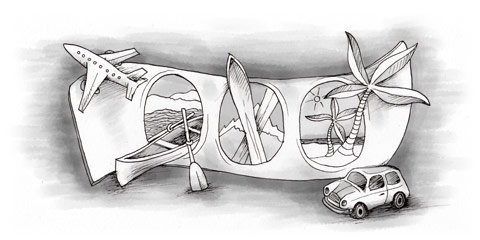The 350 km distance drive between Kaohsiung and Taipei can be completed in 4-5 hours depending on traffic. Taiwanese highways are well serviced with rest stops, service stations and petrol stations. The speed limit in Taiwan depends on the individual highway but is between 80 km/h and 110km/h. Beware of speed cameras and speed traps on certain stretches.
In Taiwan, the odd numbered freeways have toll booths, where payment is collected by automatic electronic toll. Vehicles are charged $0.04/km up to 200km + NT$0.03/excess km.
Traffic safety
Traffic safety was a major concern for expatriates in Taiwan according to a 2014 Quality of Living Survey , where driving conditions can only be described as chaotic. With huge amounts of traffic in the cities, scooters are the preferred method of transport which increases the confusion. Many drivers flout road laws and drive in a reckless fashion, (especially as lot of them have had no formal driving lessons). This means that there is a high rate of road accidents in Taiwan.
Accidents
In the unfortunate event of an accident, your first priority is to notify the relevant authorities. You can reach the police on 110 and medical assistance on 119. You need to provide the police with all the important information including the type of accident, details of vehicles involved involved and if there are any injuries or fatalities. The second call you should make is to your insurance company.
In case of a fatality, the police will investigate. Either party involved in the crash can request an investigation up to six months after the event. Both parties can agree to a compensation when there is no significant injury or fatality.

